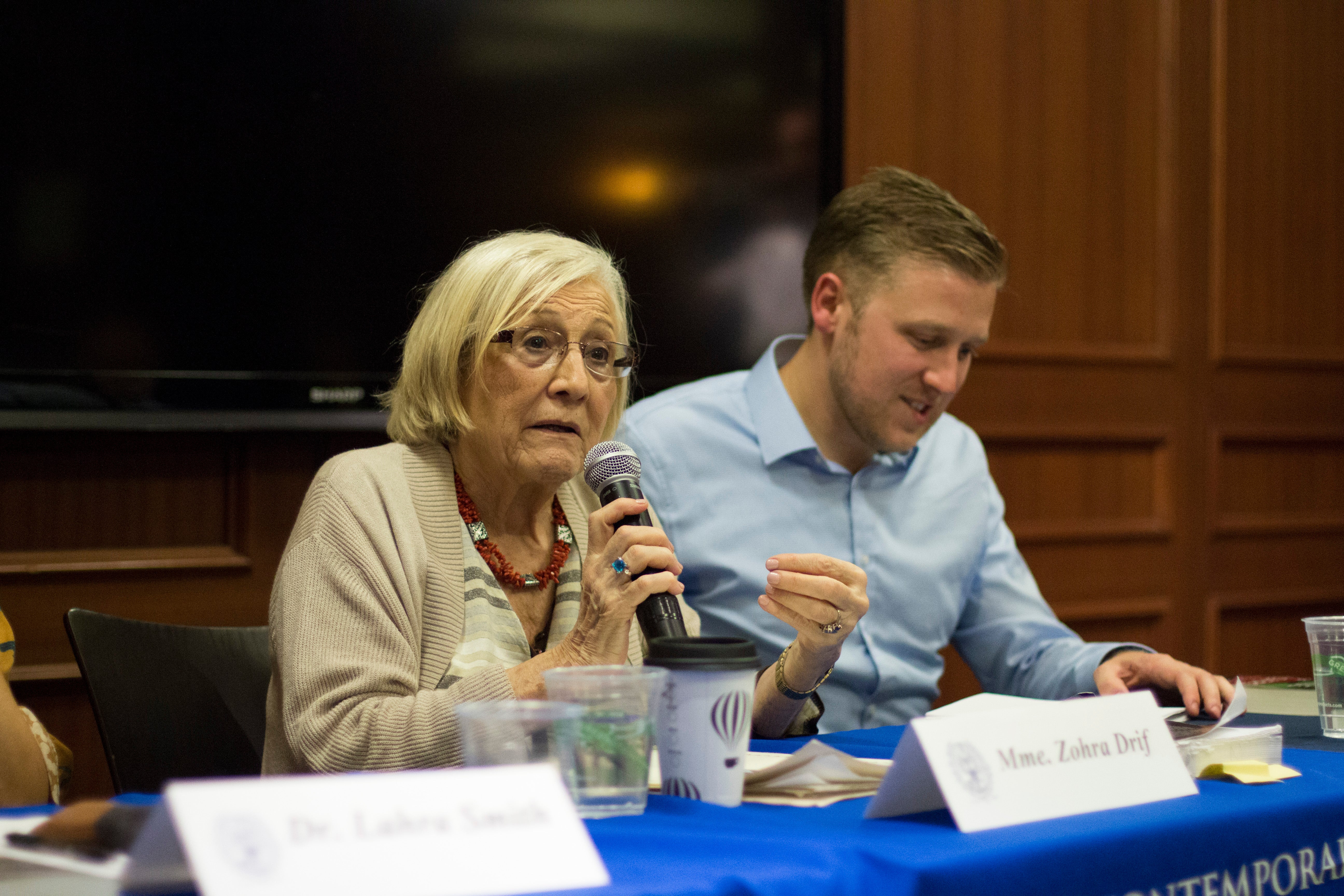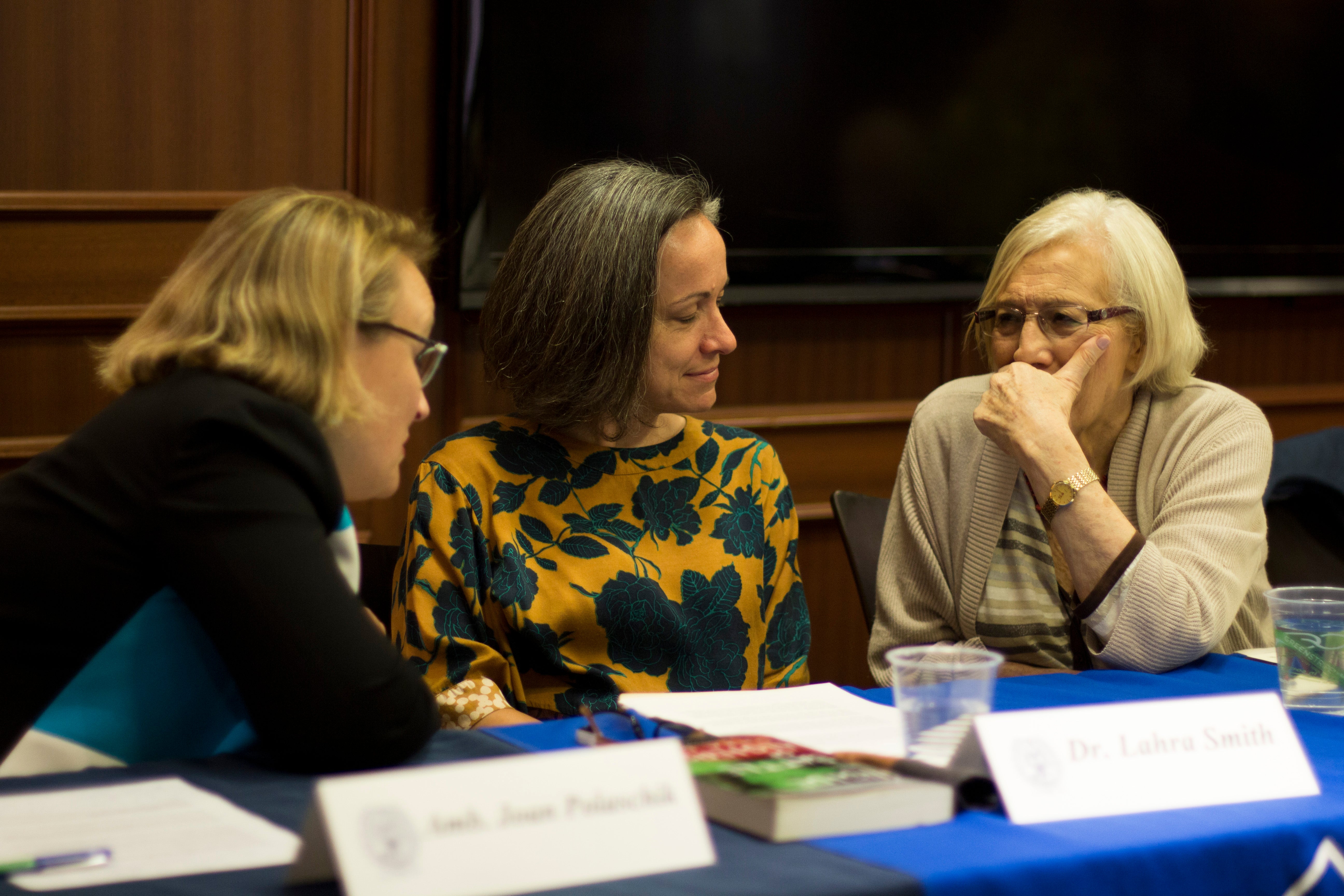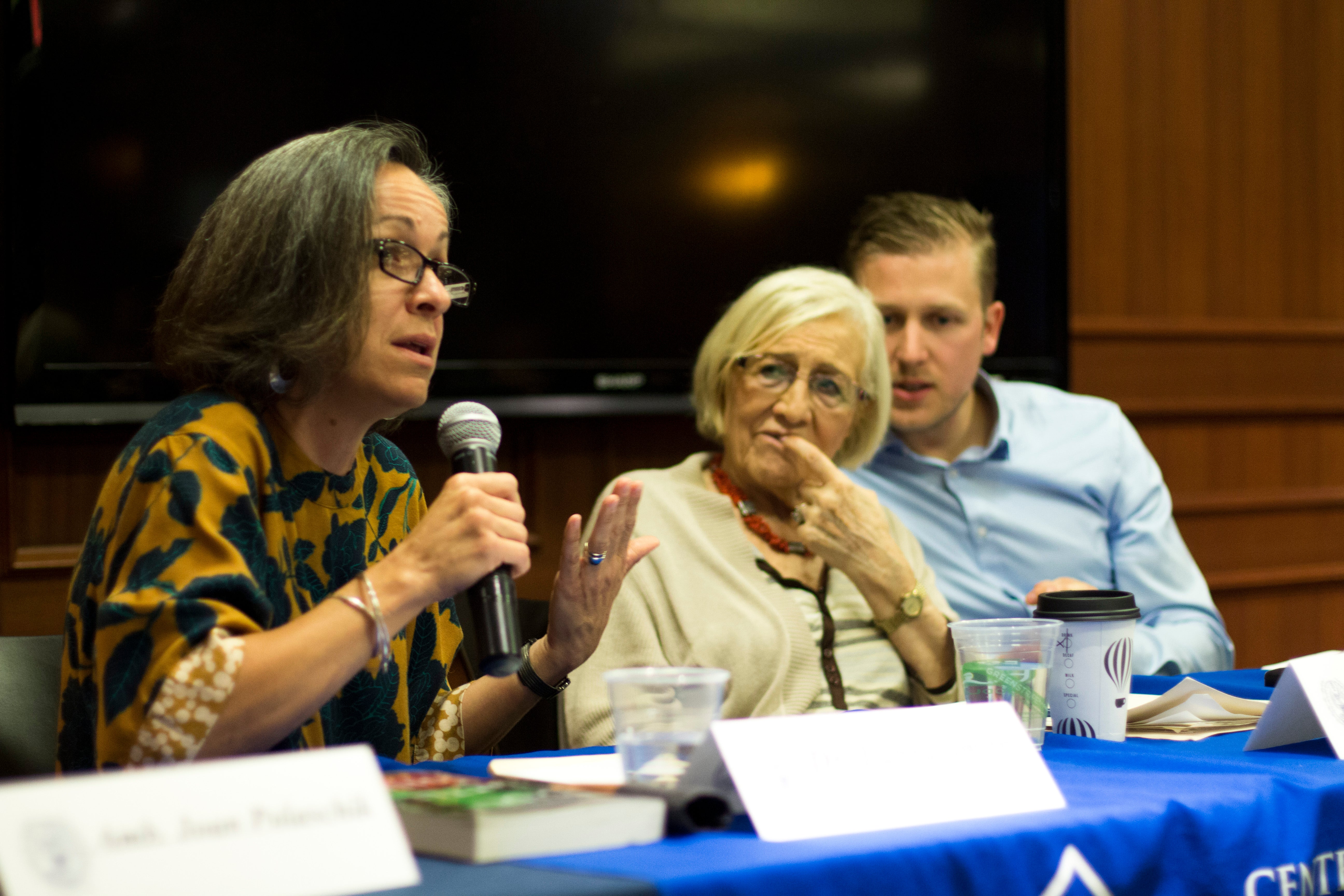
Zohra Drif, a key activist in the fight for Algerian independence from France and in the 1957 Battle for Algiers, came to campus September 19, 2017, to discuss her new book, Inside the Battle of Algiers: Memoir of a Woman Freedom Fighter. She was joined by the book’s translator from the original French, Andrew Farrand (SFS’06), as well as Ambassador Joan Polaschik (MSFS’93), former U.S. Ambassador to Algeria, and Dr. Lahra Smith, an associate professor in the SFS.
Ambassador Polaschik explained that Algeria and the United States share similar values of independence and freedom, but their diplomatic relations have not always reflected this fact. However, during their war for independence, U.S. President John F. Kennedy was one of Algeria’s biggest supporters.
Drif was one of the key players in that war. Over 50 years later, she decided to write her memoir when she realized that history books in Algeria were not telling the stories of the Algerian Independence War. She wanted to share her own account of the war and those of other members of the National Liberation Front, the FLN, that led the fight for the creation of an Algerian state.
Dr. Smith, who studies African politics, commented that when women like Drif participated in liberation movements like the one in Algeria, they gained increased representation in the post-colonial governments that followed independence.
“We’ve spent a number of years since these movements thinking about what [impact did] women’s participation have on their political life later? And in fact we’ve found women’s participation in anti-colonial movements has had quite an impact on women’s political, social, and economic life later on,” said Dr. Smith.
Drif, who also serves as the Vice President of the Council of the Nation, Algeria’s upper house of parliament, is testament to the trend Dr. Smith explained as well as to her own belief, as a lawyer, activist, and politician, that women in modern Algeria are equal to men.
The event, “Memories of Algeria’s Freedom Struggle,” was sponsored by the Center for Contemporary Arab Studies in partnership with the African Studies Program, the Georgetown Institute for Women, Peace and Security (GIWPS), the Institute for the Study of Diplomacy (ISD), the Mortara Center for International Studies, and Just World Educational.

